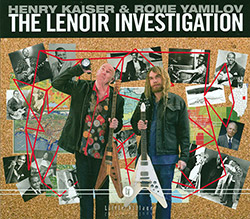
The Little Village Foundation run by keyboardist Jim Pugh assembled this band through Indian blues harmonica player & singer Aki Kumar, who brought drummer June Core and guitarist Rome Yamilov, deciding to make the release a "crazy guitar album" by adding Henry Kaiser; along with vocalist Lisa Leuschnet they hit the mark in an exuberantly diverse set of blues performing the music of J.B. Lenoir.
In Stock
Quantity in Basket: None
Log In to use our Wish List
Shipping Weight: 3.00 units
EU & UK Customers:
Discogs.com can handle your VAT payments
So please order through Discogs
Sample The Album:
Rome Yamilov-guitar, vocals
Henry Kaiser-guitar, production
Kid Andersen-bass, vocals
June Core-drums
Aki Kumar-harmonica, vocals
Lisa Leuschner-vocal
Jim Pugh [2]-organ, piano
Click an artist name above to see in-stock items for that artist.
UPC: 666449144899
Label: Little Village
Catalog ID: LVF 1046
Squidco Product Code: 31562
Format: CD
Condition: New
Released: 2022
Country: USA
Packaging: Cardboard Gatefold
Recorded at Greaseland USA, in San Jose, California, by kid Andersen.
"The Lenoir Investigation may well turn out to be the archetypal Little Village (LV) release, a beautiful mélange of brilliant, cross-cultural playing grounded in a profound respect for musical tradition seasoned with a diabolically creative dash of whimsy, all of which comes out as gorgeous music.
Little Village honcho Jim Pugh started this unique nonprofit label after a lengthy and successful career as a keyboardist (Robert Cray, Etta James) had added up to a few too many nights on the road. He began searching out fascinating music that deserved greater attention, including the extraordinary blues harmonica (accompanied by Hindi lyrics) of Aki Kumar. Kumar brought along a first-rate drummer, June Core, and an accomplished blues guitarist, Rome Yamilov, and before long Pugh said to Rome, "Why don't you make a crazy guitar album with Henry Kaiser?"
A major player in the S.F. Bay Area music scene, Henry seemed a natural for the project; he's a godfather of crazy guitar. After all, Kaiser once used the South Pole-the pole mounted at our planet's South geographic pole-as the slide to play some Antarctic blues.
Rome turned out to be a kindred soul, Henry discovered, "amazing in his precociousness and the authenticity of his blues playing." All of which is impressive since Rome was born in Russia, came to the San Jose area at the age of seven, was decently fluent in English after about a semester, and is even now still well south of the age of thirty. Yet, Henry said with an impressed shake of his head, with only one exception Rome was comfortably knowledgeable with the vast span of musical references Henry has been digging up for the past fifty years, which included Henry's next idea.
"Hey, I've made so many weird guitar duo albums. I bet we could do something more interesting. You're a very fine blues player and we both truly love the blues. So how about a blues album, but a weird one, that's unconventional in unprecedented ways? What do you think of J.B. Lenoir? He wrote so many great songs, but he seems to be almost forgotten and doesn't get anywhere near the attention he deserves nowadays. And there is no reason for us to stick strictly to the blues idioms with his songs" When Rome instantly agreed, they were off and running.
Lenoir (pronounced Len-nore) was born in Mississippi, played a bit in New Orleans, and in 1949 arrived in Chicago, where he recorded many singles and a few albums before he died far too young soon after a 1967 car accident. Although he played with George Wein's Folk Blues tours in Europe, J.B. mostly stayed in Chicago. This, coupled with his inclination for writing very serious political songs about the Korean war and civil rights, insured that neither the blues music world nor its audience gave him the attention he deserved. Henry and Rome had a perfect subject for their explorations.
They studied J.B., particularly his fine acoustic albums with Fred Below on drums, and gave themselves some ideas for genres to use in their improvisational approaches. The band for the recording-June Core (dr), Kid Andersen (bass), Jim Pugh (keys), and the two guitars, with Rome the primary vocalist-was so instantly telepathic that no rehearsal was needed and they hit the ground running; cutting all the songs in one or two takes.
"The Whale Has Swallowed Me." As Rome put it, they wanted to cover songs in styles that weren't necessarily blues...for instance, Henry said, "Let's do this like it's ska, but with a dub section." The dub section here is echoes and feedback that were not uncommon in old Jamaican dub material, but in this version, Henry notes, "Let's hear the dub land on top of the ska live, with our guitar pedals, instead of the typical studio trickery."
"People Are Meddlin' in Our Own Affairs." The two guitarists had planned plenty of space for shredding, but the slow blues songs tended to be the ideal place to freak out. Rome wondered how June and Kid, who tended to be more straight-ahead in their playing, would react...and even Rome was a bit surprised when Henry stormed out of the gate with three blazing choruses...."but I love it." "We go more nuts on guitar," said Henry, "than most people would. Actually, Buddy Guy did stuff like this... anyway, we just thought, 'let's go nuts.'"
"Round and Round." This tune is in a very obscure and difficult style: a BAOEJY from Madagascar.. Rome was a bit concerned before they played it, but Henry cheerfully said it'll be fine if Jim can hit the organ part. Henry had more confidence than Jim did initially, but a half-hour's jam with Kid and he was ready. Lisa Lueschner's vocal at the beginning is truly a delight; she adds an extra positive vibe to J.B.'s lyrics, while the band miraculously manages a groove popularized by the Malagasy salegy great Tianjama.
"Feel So Good." Henry thought of this piece as "late period Meters," a relatively simply approach. "We had to have a funk piece, and there is very little funkier than New Orleans and the Meters," said Rome.
"How Long." Henry says their approach transported Lenoir from Chicago to Texas- style blues on this one.
"Na Er Jeg I Form! / Play a Little While." Given the variety of languages floating around, it wasn't surprising when they began to emerge....in unusual ways. Musically, they transformed "Play a Little While" into a Peruvian psychedelic cumbia. And then, "It's our idea of having fun," shrugged Kaiser, the lyrics became Norwegian. Give the bass player some, indeed-since it was his native tongue, Kid Andersen got the vocal.
The one non-J.B. song opens this selection, "Rollercoaster," by Bo Diddley: "It just wanted to be played," said Rome. And then they sail into a Tuareg (a North African
Saharan tribe)-influenced version of J.B.'s "Mojo Boogie." Aki takes the lyrics here, which is why you hear his version of "I've been to New Orleans" as "I've been to old Bombay."
8. "God's Word" begins, musically, somewhere near the planet of Funkadelic masterpiece "Maggotbrain," which harp, piano, and dreamy vocals lead off into dreamland. "It's the specifically spacey side of Funkadelic," said Rome. "It came out completely natural."
9. "What About Your Daughter" is, musically, J.B.'s encounter with Little Richard and '50s rock, but twisted, says Rome-"Chuck Berry and Little Richard meet the Stooges and Motorhead." "We do these tunes with Aki," Rome said, "I can get crazy and within reason...which summed itself up in a Rome vocal in his native Russian.
10. "I'll Die Trying" was to be in Hindi so that Aki would sing it. The lyrics weren't ready when they recorded it, so for a "scratch vocal" Aki stuck to J.B.'s lyrics in English, and the results were so good that even the highly self-critical Aki liked them, and so they stayed.
11. The last two songs, "Alabama March" and "Down in Mississippi," were J.B.'s main civil rights anthems from his sides with Fred Below. Here, the guitars carry the weight of the words and meanings without any vocals.
Henry: 'This is one really weird gumbo - from both of us. And we had such a good band."
Henry Kaiser
Henry Kaiser attended a Captain Beefheart show on Halloween in 1971 while in college in the Boston area He bought a guitar the next day and spent the rest of the day "playing" along (mostly making sounds with a slide) to Live Dead, Captain Beefheart, an album with Malagasy music, and an album with Pharoah Sanders and Sonny Sharrock.
Over the next few years, he would play live or in the studio with all of them...and many more. He's appeared on more than 300 albums. Henry has visited Madagascar with David Lindley to record several award-winning albums, partnered with Wadada Leo Smith to honor Miles Davis, worked with Werner Herzog on four features, including the documentary about Antarctica, Encounters at the End of the World, for which Henry also received a producer's Oscar nomination. He has been a scientific diver in the US Antarctic program for more than 20 years and his career interweaves music, film, and science work.
Rome Yamilov
For a guy born in Russia and now hanging out with the unconventional Henry Kaiser, Rome Yamilov's start in music was astonishingly normal-American. His parents turned him on to the Beatles, Dark Side of the Moon, and Santana. Rome picked up the guitar at ten and decided he wanted to be AC DC's Angus Young. After more metal in high school, he heard In the Court of the Crimson King and shifted into progressive rock, which led him to bluegrass, John Fahey, and Chet Atkins. He even discovered J.B. Lenoir by taking a history of blues class in college-Lenoir was his teacher's favorite.
His brother fell in with Kid Andersen of Greaseland Studios (Little Village's unofficial clubhouse) and Rome discovered San Jose's local blues scene, which featured jams hosted by a harp player named Aki Kumar at Little Lou's in Campbell and the Mojo Lounge in Fremont. Rome had been in and out of high school rock bands, but Kid's scene was a great deal more serious. "It was the first time I ever saw really high-quality music being played in real time, and it blew me away." The various house bands Aki assembled gave Rome his blues education, along with the special guests who dropped by, some of them major names from Chicago."-Little Village

The Squid's Ear!
Artist Biographies
• Show Bio for Rome Yamilov Rome Yamilov is a guitarist, known for his work with Aki Kumar and John Blues Boyd. ^ Hide Bio for Rome Yamilov • Show Bio for Henry Kaiser "Henry Kaiser (born September 19, 1952) is an American guitarist and composer, known as an idiosyncratic soloist, a sideman, an ethnomusicologist, and a film score composer. Recording and performing prolifically in many styles of music, Kaiser is a fixture on the San Francisco Bay Area music scene. He is considered a member of the "second generation" of American free improvisers. He is married to Canadian artist Brandy Gale. In 1977, Kaiser founded Metalanguage Records with Larry Ochs (Rova Saxophone Quartet) and Greg Goodman. In 1979 he recorded With Friends Like These with Fred Frith, a collaboration that lasted for over 20 years. In 1983 they recorded Who Needs Enemies, and in 1987 the compilation album With Enemies Like These, Who Needs Friends? They joined with fellow experimental musicians John French, and English folk-rocker Richard Thompson to form French Frith Kaiser Thompson for two eclectic albums, Live, Love, Larf & Loaf (1987) and Invisible Means (1990). In 1999 Frith and Kaiser released Friends and Enemies, a compilation of their two Metalanguage albums along with additional material from 1984 and 1999. In 1991, Kaiser went to Madagascar with guitarist David Lindley. They recorded roots music with Malagasy musicians and discovered music that, he says, "changed us radically and permanently". Three volumes of this music were released by Shanachie under the title A World Out of Time. In 1994 he made a similar trip to Norway, again with Lindley, recording music that was released as Sweet Sunny North (2 volumes, 1994 and 1996). Since 1998, Kaiser has been collaborating with trumpeter Wadada Leo Smith in the "Yo Miles!" project, releasing a series of tributes to Miles Davis's 1970s electric music. This shifting aggregation has included musicians from the worlds of rock (guitarists Nels Cline, Mike Keneally and Chris Muir, drummer Steve Smith), jazz (saxophonists Greg Osby and John Tchicai), avant-garde (keyboardist John Medeski, guitarist Elliott Sharp), and Indian classical music (tabla player Zakir Hussain). Kaiser has appeared on more than 250 albums and scored dozens of TV shows and films, including Werner Herzog's Encounters at the End of the World (2007). He was given a Grammy Award for his work on the Beautiful Dreamer tribute to Stephen Foster. In 2001, Kaiser spent two and a half months in Antarctica on a National Science Foundation Antarctic Artists and Writers Program grant. He has subsequently returned for nine more visits to work as a research diver. His underwater camera work was featured in two Herzog films, The Wild Blue Yonder (2005) and Encounters at the End of the World (2007), which he also produced, and for which he and Lindley composed the score. Kaiser served as music producer for Herzog's Grizzly Man (2005). He was nominated for an Academy Award for his work as a producer on Encounters at the End of the World." ^ Hide Bio for Henry Kaiser • Show Bio for Kid Andersen "Christoffer "Kid" Andersen (born January 15, 1980) is a blues guitarist from Herre, Norway. By age 11, Andersen had gained the attention of Norwegian blues guitar teacher, Morten Omlid, who steered him towards traditional blues music. In 2001, at age 21, Andersen moved to the United States, joined blues frontman Terry Hanck's band, and quickly became a figure on the West Coast blues scene. Andersen later played in Charlie Musselwhite's band and got a Blues Music Award (formerly W.C. Handy Award) for best contemporary blues album for Charlie Musselwhite's Delta Hardware. Then, when Little Charlie Baty retired from touring, Andersen took his place as guitarist in the Nightcats, and the new name of Rick Estrin & The Nightcats was formed. Andersen has also done extensive touring with Elvin Bishop on the Red Dog Speaks Tour. He is married to American Idol contestant Lisa Leuschner. They currently reside in San Jose, California where Andersen is CEO of Greaseland Studios. In 2013, Andersen was nominated for a Blues Music Award in the 'Gibson Guitar' category. In 2014, 2015, and 2016 he was nominated for a Blues Music Award in the 'Best Instrumentalist – Guitar' category. In recent years, Andersen has gained a reputation of record producer using his own recording facility "Greaseland". He produced the last two albums of Rick Estrin & The Nightcats: One Wrong Turn (2012) and Groovin' in Greaseland (2017). In 2017, he also produced several albums including Stompin' Ground from Tommy Castro. In 2019 he co-producer Junior Watson's, album “Nothin' to it But to Do It” (which features his wife Lisa Leuschner Andersen on lead vocals.)" ^ Hide Bio for Kid Andersen • Show Bio for June Core "Born in Cleveland, Ohio, June is a self-taught musician. He got his first paying gig at 17 after only playing for a year. Over the next few years June gigged in and around Cleveland with organist Eddie Baccus and with various funk, jazz and soul groups. In 1978 June was introduced to Robert Lockwood Jr. and Johnny Shines. Who taught June, in one day, five different shuffles to use in any blues. "That was start of my career", says June. Robert and Johnny Shines became June's second fathers and June's musical relationship with Lockwood lasted nearly ten years. In 1980, June moved to New York and played pickups with jazz and funk bands doing the club circuit that included The Bitter End, Lonestar Café, and Freddies Café. In 1982, June returned to Cleveland. As a result of his relationship with Robert Lockwood, June shared the stage with BB King, James Cotton, Mighty Joe Young, Willie Dixon, and Albert Collins. In 1987 June headed west to San Jose, California where he was immediately hired by Mark Hummel, a stint that lasted two years. He soon met Andy Santana and the West Coast Playboys and then, along with Andy and Mike Schermer, founded the Soul Drivers, a highly successful Santa Cruz based blues band. In 1991, The Soul Drivers became Angela Stehli's backup band. June also worked as a side man for Miss Laverne Baker. In 1996 June joined Little Charlie and the Nightcats and spent five years touring with that band. In 2004 Charlie Musselwhite hired June - June has been a most valued player with Charlie ever since. Recently, June played on Grammy nominated CDs Remembering Little Walter and Musselwhite's Juke Joint Chapel, as well as Mark Hummel and Elvin Bishop's CDs nominated for BMA awards. In 2015 June was nominated for Blues Music Awards best blues drummer." ^ Hide Bio for June Core • Show Bio for Aki Kumar "Aki Kumar left his native home in Mumbai, India for the United States with the intention of working as a software engineer. Then he discovered the sounds of the blues, and his life changed dramatically. One of the hardest working artists on the music scene today, this San Jose-based musician has successfully blended elements of Indian music into his musical and visual presentation, making for a multi-cultural mash-up that sounds like no one else, yet never loses touch with the inspiration it draws from the blues. He has made multiple appearances at The Hardly Strictly Bluegrass festival, has been featured on PRI "The World," and has toured in Russia, Scandinavia and South America. Kumar's Little Village Foundation releases Aki Goes To Bollywood (2016) and Hindi Man Blues (2018) are considered ground-breaking albums that have garnered international critical acclaim. In 2020, Kumar made major news with the world-wide launch of his album Dilruba on Sony Music India. Kumar kicked off 2021 with the release of an uplifting reggae-infused single "Zindagi" (Life)." ^ Hide Bio for Aki Kumar • Show Bio for Lisa Leuschner "Lisa Leuschner (born August 1, 1982) is an American singer and was a semi-finalist of American Idol (Season 3), from La Selva Beach, California (although American Idol credits her hometown as Watsonville, California.) Lisa Leuschner appeared on the audition episodes for the second season of American Idol, where she sparked an argument between Paula Abdul and Simon Cowell about her weight. During that audition she sang "Saving All My Love for You", and made it to Hollywood. That season, she was cut. She auditioned again for the third season and became a semi-finalist. During season 3 she performed Mariah Carey's "Vision Of Love" and greatly impressed the judges. She was put through to Hollywood, but not before a brief disagreement with Simon Cowell about her weight (continued from the year before.) She made it to the top 32 where she performed the classic "Sweet Thing", by Chaka Khan. She placed third in her round, while the top two vote getters went on to the top 12 (Camile Velasco and Matthew Rogers). She was then called back for the wildcard round. However, under controversial circumstances that are not truly defined, Lisa and several other contestants were not allowed to perform. Slight outrage resulted from this when seemingly less talented singers were allowed to perform and enter the top 12 (i.e. Leah LaBelle, who ironically contributed to Lisa's album projects). In November, 2004 Succession Records released Sing Me Home, a CD of Christmas songs sung by Lisa Leuschner. A second album, Reality, was released in 2007. Leuschner was born in Fremont, California and raised in Santa Cruz, California. Lisa has lived in Santa Cruz County, California most of her life. Her American Idol is Stevie Wonder. Besides singing, Lisa enjoys dancing and writing parodies with her friends." ^ Hide Bio for Lisa Leuschner • Show Bio for Jim Pugh [2] "Jim Pugh's international performing music career spans 40 years and includes multiple Grammy Award, platinum and gold records. He has recorded and performed with a star-studded array of musicians including B.B. King, Etta James, John Lee Hooker, Robert Cray, Boz Skaggs, Syl Johnson and Van Morrison. He created Little Village Foundation in 2014 to share the diverse music that has always inspired him and to help other artists, especially musicians no one would learn about without Little Village Foundation's support. Still performing, Jim's career started in San Francisco at the Stardust Lounge, a corner lounge owned by a feisty singer named Dottie who was always ready to break up a fight by keeping hold of a pool cue even while she was singing. There are always great stories behind the music, and Jim works to keep sharing them across boundaries of race, gender, age, geography or economics. Jim lives in Santa Ynez, California, an area rich with surprising music." ^ Hide Bio for Jim Pugh [2]
7/1/2025
Have a better biography or biography source? Please Contact Us so that we can update this biography.
7/1/2025
Have a better biography or biography source? Please Contact Us so that we can update this biography.
7/1/2025
Have a better biography or biography source? Please Contact Us so that we can update this biography.
7/1/2025
Have a better biography or biography source? Please Contact Us so that we can update this biography.
7/1/2025
Have a better biography or biography source? Please Contact Us so that we can update this biography.
7/1/2025
Have a better biography or biography source? Please Contact Us so that we can update this biography.
7/1/2025
Have a better biography or biography source? Please Contact Us so that we can update this biography.
Track Listing:
1. The Whale Has Swallowed Me 6:07
2. People Are Meddlin' In Our Own Affairs 9:34
3. Round And Round 7:37
4. I Feel So Good 7:10
5. How Long 4:53
6. Na Er Jeg I Form! (Play A Little While) 6:17
7. Rollercoaster/The Mojo Boogie 11:26
8. God's Word 9:27
9. What About Your Daughter 4:40
10. I'll Die Trying 4:08
11. Alabama March/Down In Mississippi 9:10
Rock and Related
Song Based Music
West Coast/Pacific US Jazz
Large Ensembles
Song Based Music
Guitarists, &c.
New in Rock Forms
Search for other titles on the label:
Little Village.

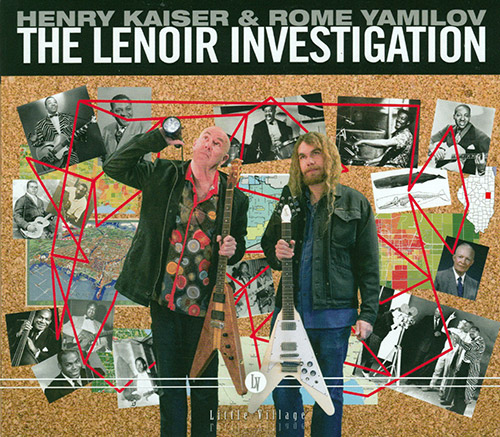
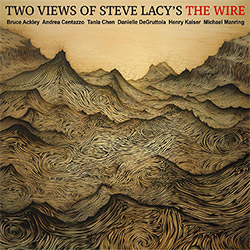
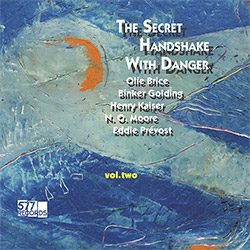


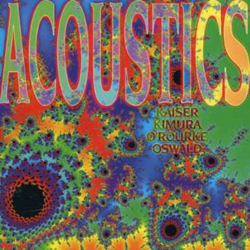



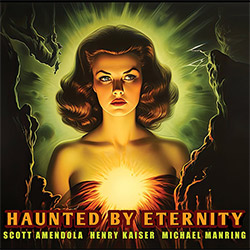
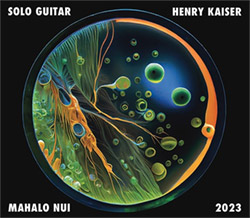
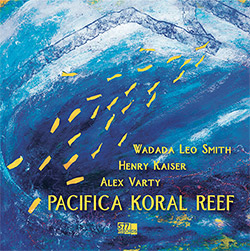
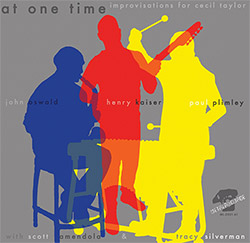
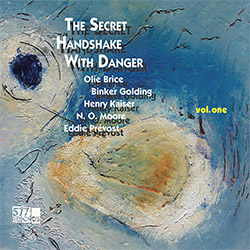

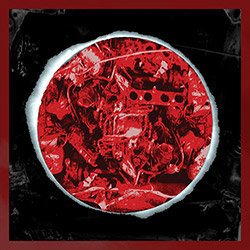
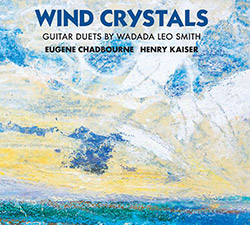


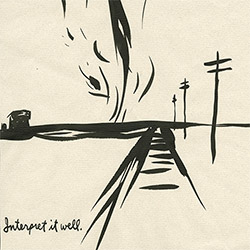
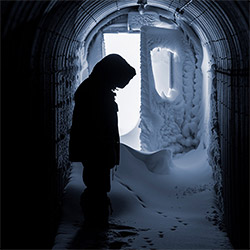


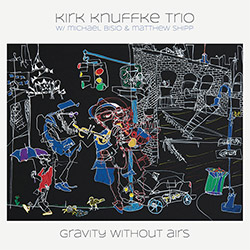
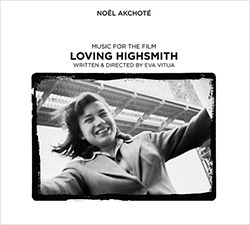
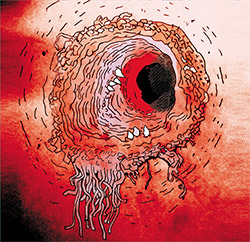











![Deupree, Jerome / Sylvie Courvoisier / Lester St. Louis / Joe Morris: Canyon [2 CDs]](https://www.teuthida.com/productImages/misc4/36404.jpg)


![Eternities: Rides Again [CASSETTE]](https://www.teuthida.com/productImages/misc4/36247.jpg)

![Lopez, Francisco: Untitled (2021-2022) [2 CDs]](https://www.teuthida.com/productImages/misc4/36438.jpg)




![Eventless Plot | Haarvol: The Subliminal Paths [CASSETTE + DOWNLOAD]](https://www.teuthida.com/productImages/misc4/36232.jpg)












![Eventless Plot | Francesco Covarino: Methexis [CASSETTE + DOWNLOAD]](https://www.teuthida.com/productImages/misc4/36231.jpg)



![Das B (Mazen Kerbaj / Mike Majkowski / Magda Mayas / Tony Buck): Love [VINYL]](https://www.teuthida.com/productImages/misc4/36329.jpg)



![Hemphill Stringtet, The: Plays the Music of Julius Hemphill [VINYL]](https://www.teuthida.com/productImages/misc4/36409.jpg)



![Halvorson, Mary Septet: Illusionary Sea [2 LPS]](https://www.teuthida.com/productImages/misc4/17952.jpg)






![Money : Money 2 [2 CDs]](https://www.teuthida.com/productImages/misc4/35894.jpg)




![Klinga, Erik: Elusive Shimmer [VINYL]](https://www.teuthida.com/productImages/misc4/36258.jpg)
![CHANGES TO blind (Phil Zampino): Volume 9 - I Wave on a Fine Vile Mist [CD + DOWNLOAD]](https://www.teuthida.com/productImages/misc4/36061.jpg)

![Wallmart / Rubbish: Asset Protection [split CD]](https://www.teuthida.com/productImages/misc4/35900.jpg)


![+Dog+: The Family Music Book Vol. 5 [2 CDs]](https://www.teuthida.com/productImages/misc4/35897.jpg)
![Kuvveti, Deli : Kuslar Soyledi [CASSETTE w/ DOWNLOAD]](https://www.teuthida.com/productImages/misc4/36107.jpg)

![Nakayama, Tetsuya: Edo Wan [CASSETTE w/ DOWNLOAD]](https://www.teuthida.com/productImages/misc4/36105.jpg)




![Yiyuan, Liang / Li Daiguo: Sonic Talismans [VINYL]](https://www.teuthida.com/productImages/misc4/35957.jpg)
![Brown, Dan / Dan Reynolds: Live At The Grange Hall [unauthorized][CASSETTE]](https://www.teuthida.com/productImages/misc4/36245.jpg)








![Palestine, Charlemagne / Seppe Gebruers: Beyondddddd The Notessssss [VINYL]](https://www.teuthida.com/productImages/misc4/36206.jpg)
![Palestine, Charlemagne / Seppe Gebruers: Beyondddddd The Notessssss [NEON GREEN VINYL]](https://www.teuthida.com/productImages/misc4/36207.jpg)

![Laubrock, Ingrid: Purposing The Air [2 CDs]](https://www.teuthida.com/productImages/misc4/35639.jpg)

![Yoko, Ono / The Great Learning Orchestra: Selected Recordings From Grapefruit [2 CDs]](https://www.teuthida.com/productImages/misc4/35841.jpg)









![Zorn, John / JACK Quartet: The Complete String Quartets [2 CDs]](https://www.teuthida.com/productImages/misc4/35609.jpg)

![Lonsdale, Eden: Dawnings [2 CDs]](https://www.teuthida.com/productImages/misc4/35480.jpg)


![Sorry For Laughing (G. Whitlow / M. Bates / Dave-Id / E. Ka-Spel): Rain Flowers [2 CDS]](https://www.teuthida.com/productImages/misc4/35985.jpg)

![Rolando, Tommaso / Andy Moor : Biscotti [CASSETTE w/ DOWNLOADS]](https://www.teuthida.com/productImages/misc4/36106.jpg)

![Electric Bird Noise / Derek Roddy: 8-10-22 [CD EP]](https://www.teuthida.com/productImages/misc4/35970.jpg)








![Elephant9 : Mythical River [VINYL]](https://www.teuthida.com/productImages/misc4/34624.jpg)



![Elephant9 with Terje Rypdal: Catching Fire [VINYL 2 LPs]](https://www.teuthida.com/productImages/misc4/35355.jpg)
![Deerlady (Obomsawin, Mali / Magdalena Abrego): Greatest Hits [VINYL]](https://www.teuthida.com/productImages/misc4/34876.jpg)







![Surplus 1980: Illusion of Consistency [CD]](https://www.teuthida.com/productImages/misc4/35069.jpg)
![Staiano, Moe: Away Towards the Light [VINYL + DOWNLOAD]](https://www.teuthida.com/productImages/misc4/35037.jpg)
![Coley, Byron: Dating Tips for Touring Bands [VINYL]](https://www.teuthida.com/productImages/misc4/17906.jpg)

![Lost Kisses: My Life is Sad & Funny [DVD]](https://www.teuthida.com/productImages/misc4/lostKissesDVD.jpg)